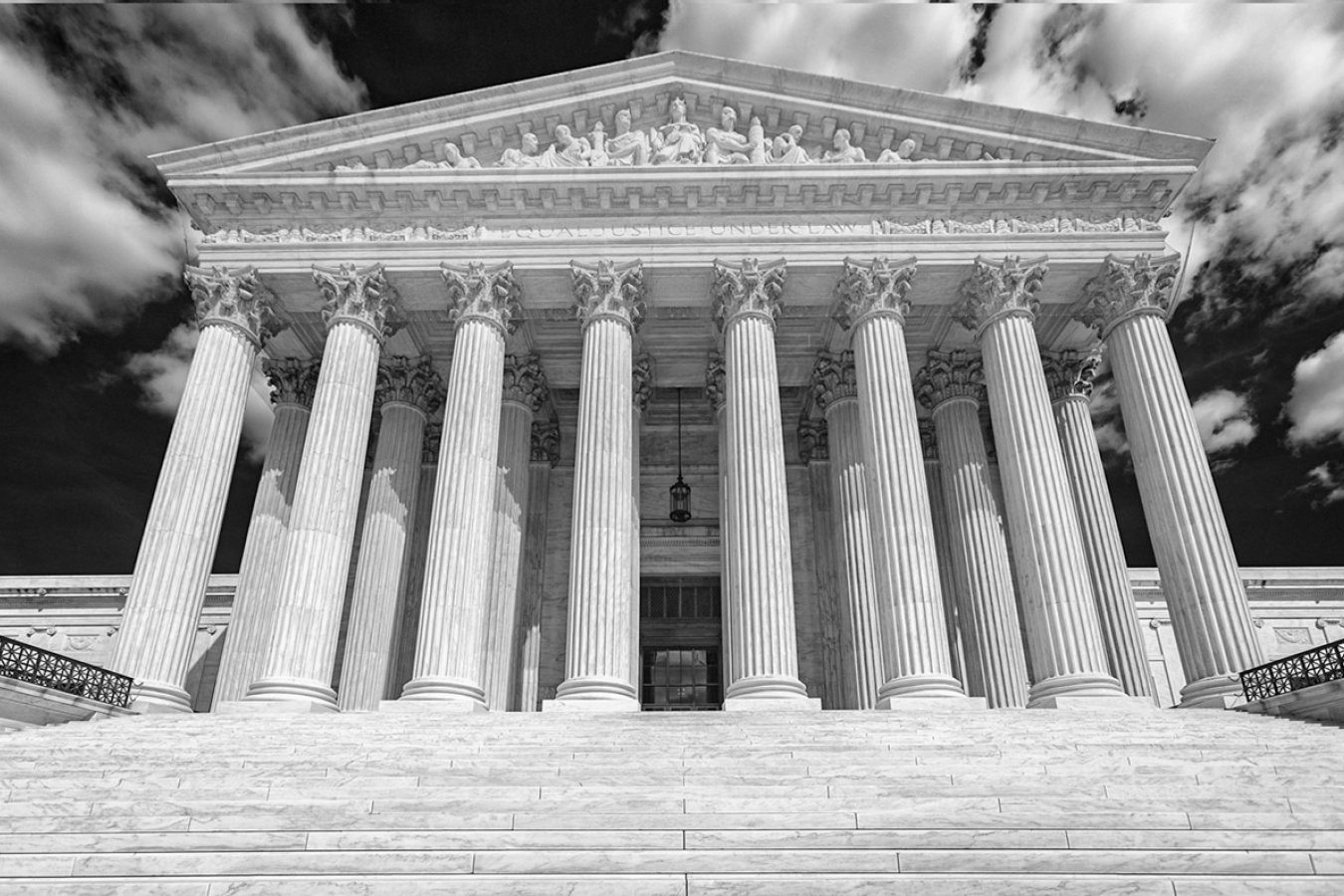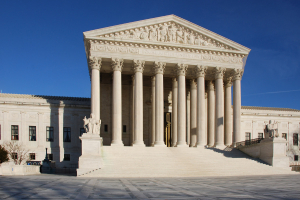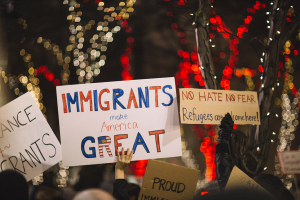us-supreme-court.jpg

Photo by Thru My Shutter on Flickr.
Support migrant centric journalism today and donate

The US Supreme Court is set to allow green card restrictions for immigrants with ‘Temporary Protected Status’ (TPS) who entered America illegally. Justices heard arguments on whether to allow TPS immigrants to apply for lawful permanent residency, but will seemingly block them from access to green cards.
The case, which could affect tens of thousands of people, was brought by El Salvador natives Jose Sanchez and Sonia Gonzalez, who came to the US illegally in the late 1990s. El Salvador was devastated by earthquakes in 2001, at which point the United Status made the country’s citizens eligible for TPS.
The TPS program provides protection for immigrants from certain parts of the world who are fleeing natural disasters and war, from deportation and allows them to find work in the US.
Granted protection
Gonzalez and Sanchez, a married couple, were granted protection under the program. In 2014, they applied for legal permanent residency in the US – commonly referred to as a green card. However, their application was denied and they subsequently sued.
The US Court of Appeals for the Third Circuit, based in Philadelphia, ruled against them, stating that the couple were ‘ineligible because of a part of US immigration law that requires applicants to have been inspected and admitted into the US.’
Judge Thomas M. Hardiman, part of a three-judge panel that ruled unanimously, said: “Temporary Protected Status does not constitute admission. As its name suggest this protection is meant to be temporary.”
Meanwhile, Justice Stephen G. Breyer said: “The law has interlocking provisions, some of which are hard to reconcile. I have to admit that the immigration statute is pretty complicated.”
Couple had been admitted to the US
Lawyer for Gonzalez and Sanchez, Amy M. Saharia, relied on another provision, with this one saying that ‘people granted TPS shall be considered as being in, and maintaining, lawful status as a nonimmigrant’. Saharia argued that this meant that her clients had effectively been admitted into the United States.
She said: “Having been inspected and admitted is inherent in having nonimmigrant status.”
However, the Supreme Court justices rebuffed Saharia’s argument. Chief Justice, John G. Roberts Jr, said: “I can’t follow the logic of your main submission.”
Meanwhile, Justice Clarence Thomas said that the couple had “clearly not been admitted at the US border,” so questioned Saharia asking “is that a fiction? Is it metaphysical? What is it? I don’t know.”
Uphill climb
Justice Brett M. Kavanaugh told the couple that they faced an ‘uphill climb textually speaking’, but added that the Supreme Court could let Congress address the matter.
Lawyer for the federal government, Michael R. Huston said: “Many people with Temporary Protected Status can apply for green cards — so long as they have entered the country lawfully. They need to have been admitted as a student or an au pair or a temporary worker or something like that.”
The case however has reportedly left the Biden administration in somewhat of a quandary. It sought only to win the case provisionally, while leaving room for the government to change its approach.
Chief Justice Roberts said that there was a ‘tension’ in the administration’s position and suggested that it had softened the government’s stance post-election. “I was struck by the extent to which your brief undersold your position,” he told Mr Huston.
“Throughout it, you said things like the text doesn’t foreclose your position; the court was not required to accept the petitioners’ reading; the statute does not clearly exclude your reading; Congress did not unambiguously mandate the opponent’s position and of course you ended by saying that it would not be entirely unreasonable for the court to rule in your favor,” he said.
“I made that last one up,” Chief Justice Roberts admitted, “but that’s what I was expecting to see,” he added.
Workpermit.com can help with US employment-based visas
If you would like to apply for a US work visa – including L1 visas, E2 visas, O1 visas and H1B visas - Workpermit.com can help.
Workpermit.com is a specialist visa services firm with over thirty years of experience dealing with visa applications. We can help with a wide range of visa applications to your country of choice. Contact us for further details. You can also telephone 0344 991 9222.




















